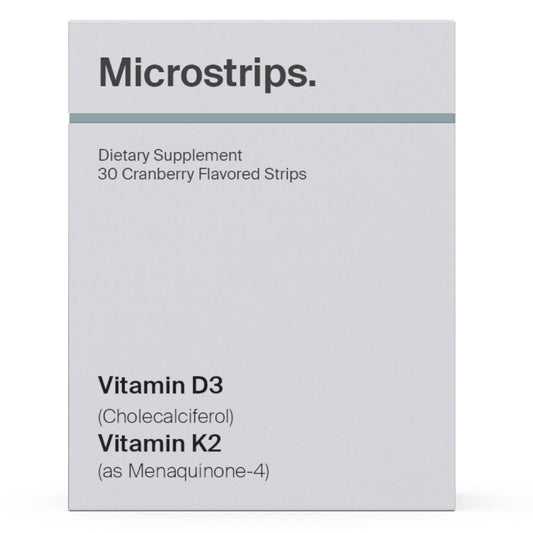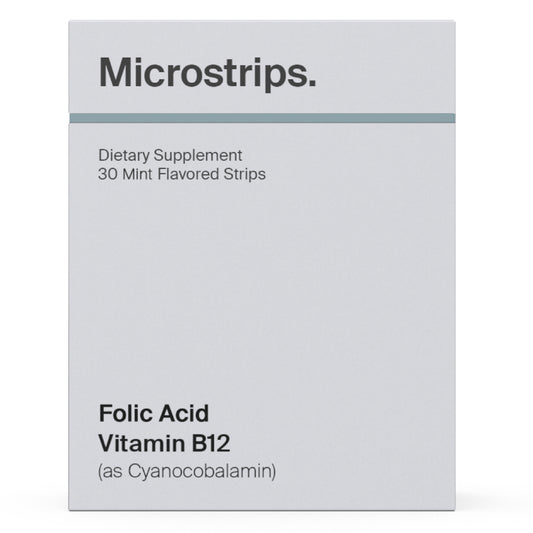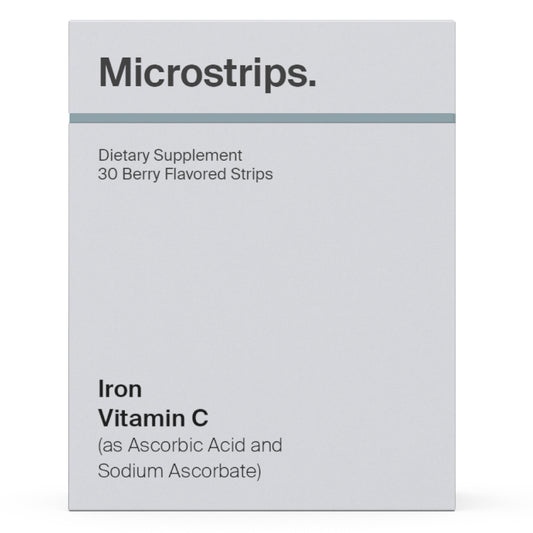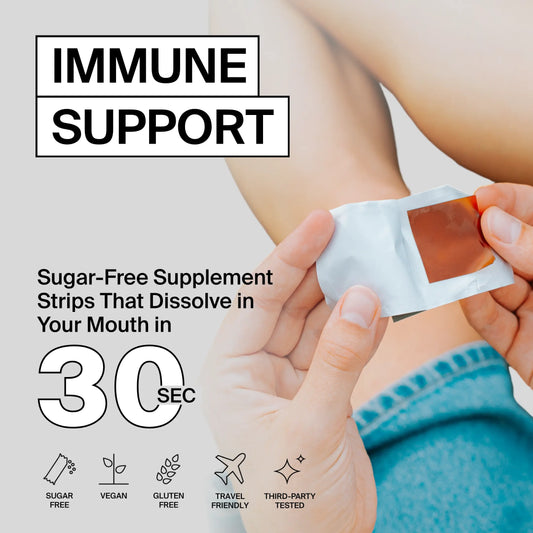Introduction
In today's fast-paced world, managing insulin resistance has become a significant concern for many individuals, especially those dealing with conditions like Polycystic Ovary Syndrome (PCOS). Insulin resistance, a condition where the body's cells become less responsive to the hormone insulin, plays a central role in the development of several chronic health issues, including type 2 diabetes, cardiovascular diseases, and metabolic syndrome. Despite increasing awareness of the dangers of insulin resistance, traditional dietary recommendations, particularly those prevalent in American culture, often exacerbate rather than alleviate this condition.
Understanding how diet influences insulin resistance is crucial for making informed choices that support long-term health. This blog will explore the impact of conventional American dietary recommendations on insulin resistance, provide insights into the latest scientific findings linking PCOS with insulin resistance, and discuss how dietary and lifestyle changes can help manage these conditions. Additionally, we will delve into the Ayurvedic approach, which offers natural remedies and practices that can complement modern dietary strategies, emphasizing the role of liver health in insulin resistance management.
This comprehensive guide will also offer practical tools, including a downloadable checklist of foods to avoid and those to embrace, empowering you to make choices that support your health journey. By integrating these insights and recommendations, you can take proactive steps to manage insulin resistance, support metabolic health, and enhance overall well-being.
How American Diet Recommendations Actually Make Insulin Resistance Worse
The Dietary Guidelines for Americans (DGA) have long served as a cornerstone for nutrition advice, aiming to guide the public towards healthier eating patterns. However, despite these well-intentioned efforts, the prevalence of diet-related chronic diseases, including insulin resistance, has continued to rise. A closer examination of the guidelines reveals certain aspects that may inadvertently contribute to worsening insulin resistance, particularly through their recommendations on carbohydrate intake, dietary fats, and the overall approach to macronutrient distribution.
Emphasis on High Carbohydrate Intake
One of the primary issues with the American diet recommendations is the emphasis on high carbohydrate consumption, particularly from grains. The DGA has historically promoted a diet where 45-65% of daily caloric intake comes from carbohydrates, a significant portion of which is derived from grains, including refined grains like bread, pasta, and cereals(Dietary_Guidelines_for_…). While whole grains are encouraged, many Americans consume refined grains, which have a high glycemic index and can cause rapid spikes in blood sugar levels. These spikes, when frequent, contribute to the development of insulin resistance as the body becomes less responsive to insulin due to constantly elevated glucose levels.
Underestimation of the Impact of Processed Foods and Sugars
Another critical area where the DGA falls short is its approach to processed foods and sugars. Although the guidelines advise limiting added sugars to less than 10% of daily calories, they do not adequately address the pervasive presence of hidden sugars and highly processed foods in the typical American diet(Dietary_Guidelines_for_…). These foods are often high in refined carbohydrates, unhealthy fats, and additives, all of which contribute to inflammation and insulin resistance. The accessibility and marketing of these products further exacerbate their consumption, making it difficult for individuals to adhere to the recommended limits.
Overemphasis on Low-Fat Products
For decades, the DGA has emphasized reducing dietary fat, particularly saturated fat, as a strategy to combat heart disease. This has led to a proliferation of low-fat and fat-free products in the market, many of which compensate for the reduced fat content by increasing sugar or refined carbohydrate content(Dietary_Guidelines_for_…). This shift has inadvertently fueled insulin resistance, as diets high in refined carbohydrates can lead to elevated blood sugar levels and subsequent insulin spikes.
Moreover, the reduction in healthy fats—such as those from nuts, seeds, and fatty fish—can diminish the body’s ability to manage blood sugar effectively. Healthy fats are essential for maintaining cell membrane integrity and promoting insulin sensitivity. By focusing on a low-fat diet, individuals may miss out on these crucial benefits, inadvertently worsening insulin resistance.
Lack of Individualized Dietary Approaches
The DGA’s one-size-fits-all approach also fails to account for individual differences in metabolism, insulin sensitivity, and lifestyle. For instance, individuals with a predisposition to insulin resistance or metabolic syndrome may require a diet lower in carbohydrates and higher in fats and proteins to manage their condition effectively. The guidelines' general recommendations may not provide the necessary flexibility to accommodate these individual needs, leading to suboptimal health outcomes for those at risk of or already experiencing insulin resistance(Dietary_Guidelines_for_…).
Whilst the Dietary Guidelines for Americans aim to promote health and prevent disease, certain aspects of these recommendations may inadvertently contribute to the development and worsening of insulin resistance. The emphasis on high carbohydrate intake, the prevalence of processed foods and hidden sugars, the overemphasis on low-fat products, and the lack of individualized dietary advice all play a role in this issue. For those looking to manage insulin resistance effectively, it may be necessary to critically evaluate and adjust these dietary recommendations to better align with their individual health needs.
The New Science Linking PCOS and Insulin Resistance: How Diet and Herbs Can Alleviate Symptoms
Polycystic Ovary Syndrome (PCOS) is one of the most common endocrine disorders affecting women of reproductive age. Characterized by a range of symptoms including irregular menstrual cycles, hirsutism, acne, and polycystic ovaries, PCOS is closely linked to insulin resistance, which exacerbates these symptoms and increases the risk of developing type 2 diabetes and cardiovascular disease. Emerging research has solidified the connection between insulin resistance and PCOS, highlighting the critical role of diet and lifestyle in managing this condition.
The Link Between PCOS and Insulin Resistance
Recent studies have demonstrated that insulin resistance is not just a byproduct of PCOS but is a fundamental factor in its pathogenesis. Insulin resistance occurs when the body’s cells become less responsive to insulin, leading to higher levels of insulin in the blood (hyperinsulinemia). This excess insulin stimulates the ovaries to produce more androgens (male hormones like testosterone), which disrupts normal ovarian function and contributes to the symptoms of PCOS, such as irregular periods, weight gain, and excessive hair growth(Dietary_Guidelines_for_…).
Moreover, the presence of insulin resistance in women with PCOS increases the risk of metabolic syndrome, a cluster of conditions that include increased blood pressure, high blood sugar, excess body fat around the waist, and abnormal cholesterol levels. This underscores the importance of addressing insulin resistance not only to manage PCOS symptoms but also to prevent long-term health complications.
How Changing Diet Can Help Manage PCOS Symptoms
Given the strong link between insulin resistance and PCOS, dietary changes play a pivotal role in managing this condition. A diet that focuses on stabilizing blood sugar levels and improving insulin sensitivity can significantly reduce the severity of PCOS symptoms. Key dietary strategies include:
- Low Glycemic Index Foods: Incorporating foods that have a low glycemic index (GI), such as leafy greens, whole grains, legumes, and non-starchy vegetables, helps to prevent rapid spikes in blood sugar and insulin levels. These foods release glucose slowly into the bloodstream, which helps maintain stable blood sugar levels and reduces insulin resistance.
- Balanced Macronutrient Intake: A diet that includes a balanced intake of carbohydrates, proteins, and healthy fats is crucial. Complex carbohydrates (like quinoa and brown rice) paired with protein and healthy fats (such as those from avocados, nuts, and fatty fish) can enhance satiety, reduce cravings, and support better blood sugar control.
- Reduction of Processed Foods and Sugars: Eliminating or reducing the intake of refined sugars and processed foods, which contribute to insulin spikes and inflammation, is essential. Natural sweeteners like stevia or monk fruit can be used as alternatives to manage sugar cravings without impacting insulin levels.
- Incorporation of Anti-Inflammatory Foods: Since inflammation is a common issue in PCOS, incorporating anti-inflammatory foods such as turmeric, ginger, and omega-3 rich foods like fatty fish can help reduce inflammation and improve insulin sensitivity.
Herbal Support for PCOS and Insulin Resistance
In addition to dietary changes, certain herbs have shown promise in supporting insulin sensitivity and alleviating PCOS symptoms. These herbs can be integrated into the daily routine to enhance the effectiveness of dietary and lifestyle changes:
- Cinnamon: Cinnamon has been shown to improve insulin sensitivity and lower blood glucose levels. It can be easily incorporated into the diet by adding it to foods like oatmeal, smoothies, or herbal teas.
- Spearmint: Spearmint is known for its anti-androgenic properties, which help reduce testosterone levels. This can be particularly beneficial for managing symptoms like hirsutism and acne in women with PCOS.
- Inositol (Myo-Inositol and D-Chiro-Inositol): These forms of inositol are effective in improving insulin signaling pathways, enhancing ovarian function, and restoring menstrual regularity in women with PCOS.
- Berberine: Berberine is an alkaloid that activates AMPK, an enzyme that plays a role in regulating insulin sensitivity and glucose metabolism. It has been found to reduce insulin resistance, support weight loss, and improve lipid profiles, making it a valuable herb for managing PCOS.
- N-Acetylcysteine (NAC): NAC is a powerful antioxidant that improves insulin sensitivity and enhances ovulation in women with PCOS. It also helps reduce oxidative stress, which is often elevated in individuals with insulin resistance.
- Saw Palmetto: This herb inhibits the enzyme 5-alpha-reductase, which is involved in the conversion of testosterone to dihydrotestosterone (DHT), a hormone linked to hair loss and acne in PCOS. By reducing DHT levels, Saw Palmetto can help manage these symptoms.
- Vitex (Chaste Tree Berry): Vitex works by regulating the pituitary gland to balance hormone levels, particularly progesterone, which is often low in women with PCOS. This helps improve menstrual regularity and reduces symptoms of PMS and acne.
The new science linking PCOS with insulin resistance highlights the critical need for dietary and lifestyle interventions in managing this condition. By adopting a diet that stabilizes blood sugar levels, reducing the intake of processed foods, and incorporating specific herbs that support insulin sensitivity and hormonal balance, women with PCOS can effectively manage their symptoms and improve their overall health. This holistic approach not only addresses the root causes of PCOS but also supports long-term metabolic health, reducing the risk of more severe complications associated with insulin resistance.
The Link Between Hormonal Changes and Insulin Resistance: Herbs for Balancing Hormones
Hormonal balance is crucial for the proper functioning of various physiological processes in the body. However, when this balance is disrupted, it can lead to several health issues, including insulin resistance. Insulin resistance itself can further exacerbate hormonal imbalances, creating a vicious cycle that can be challenging to break. Understanding the interplay between hormones and insulin resistance is essential for managing conditions like PCOS, metabolic syndrome, and other related disorders. Integrating specific herbs known for their hormone-balancing properties can support this process, providing a natural approach to restoring equilibrium in the body.
How Hormonal Changes Contribute to Insulin Resistance
Hormones like insulin, estrogen, progesterone, and testosterone play significant roles in the regulation of glucose metabolism and overall metabolic health. Disruptions in these hormones can lead to or worsen insulin resistance.
- Estrogen and Insulin Resistance: Estrogen is known to have a protective effect against insulin resistance. During reproductive years, women typically have higher levels of estrogen, which helps maintain insulin sensitivity. However, fluctuations in estrogen levels, such as those that occur during menopause or due to conditions like PCOS, can reduce insulin sensitivity, making the body more prone to insulin resistance. Lower estrogen levels are associated with increased fat accumulation, particularly in the abdominal area, which further contributes to insulin resistance.
- Progesterone and Insulin Sensitivity: Progesterone, another key hormone, also influences insulin sensitivity. During the luteal phase of the menstrual cycle, when progesterone levels are higher, insulin sensitivity may decrease slightly. However, chronic imbalance of progesterone, often seen in conditions like PCOS, can lead to prolonged periods of reduced insulin sensitivity, contributing to the development of insulin resistance.
- Testosterone and Insulin Resistance: Elevated levels of testosterone, commonly seen in women with PCOS, are closely linked to insulin resistance. High testosterone levels can interfere with the normal function of insulin, making it more difficult for the body to regulate blood sugar levels. This hormonal imbalance not only contributes to insulin resistance but also exacerbates the symptoms of PCOS, such as hirsutism and acne.
- Cortisol and Insulin Resistance: Cortisol, the stress hormone, also plays a significant role in insulin resistance. Chronic stress leads to elevated cortisol levels, which can cause an increase in blood sugar levels and promote the storage of fat, particularly in the abdominal area. This creates an environment conducive to the development of insulin resistance.
Herbs that Support Hormonal Balance and Insulin Sensitivity
Incorporating specific herbs into the diet can help balance hormones and, in turn, improve insulin sensitivity. These herbs work by modulating hormone levels, supporting endocrine function, and reducing inflammation, which are all crucial for managing insulin resistance.
- Vitex (Chaste Tree Berry): Vitex is well-known for its ability to regulate the menstrual cycle by balancing progesterone levels. It works by influencing the pituitary gland, which governs the production of hormones like progesterone and estrogen. By promoting hormonal balance, Vitex can help improve insulin sensitivity, particularly in women with hormonal imbalances related to PCOS or menopause.
- Licorice Root: Licorice root contains compounds that mimic the effects of estrogen, making it beneficial for women experiencing low estrogen levels. It also has anti-androgenic properties, which can help reduce testosterone levels in women with PCOS. By balancing estrogen and testosterone levels, licorice root can improve insulin sensitivity and reduce symptoms associated with hormonal imbalances.
- Saw Palmetto: This herb is commonly used to manage symptoms of excess androgens, such as those seen in PCOS. Saw palmetto inhibits the enzyme 5-alpha-reductase, which converts testosterone into its more potent form, dihydrotestosterone (DHT). By reducing DHT levels, saw palmetto helps to manage hirsutism and acne while also supporting better insulin sensitivity.
- Ashwagandha: Ashwagandha is an adaptogenic herb that helps the body manage stress by modulating cortisol levels. Since chronic stress and elevated cortisol can lead to insulin resistance, ashwagandha’s ability to balance cortisol levels can have a positive impact on insulin sensitivity. Additionally, ashwagandha supports overall endocrine function, promoting hormonal balance across the board.
- Maca Root: Maca root is another adaptogen that helps balance hormones by nourishing the endocrine system. It is particularly effective in managing symptoms of menopause, such as hot flashes and mood swings, which are associated with fluctuating hormone levels. By stabilizing these hormones, maca root can contribute to improved insulin sensitivity.
- Evening Primrose Oil: Rich in gamma-linolenic acid (GLA), evening primrose oil is often used to balance hormones, particularly in women experiencing PMS or menopausal symptoms. GLA is an omega-6 fatty acid that helps reduce inflammation and support hormone production. By promoting hormonal balance, evening primrose oil can also help improve insulin sensitivity.
- Fenugreek: Fenugreek seeds are known for their ability to improve insulin sensitivity and lower blood sugar levels. Additionally, fenugreek has phytoestrogenic properties, which can help balance estrogen levels in the body. This dual action makes fenugreek a valuable herb for managing both insulin resistance and hormonal imbalances.
Hormonal imbalances are a significant contributor to insulin resistance, particularly in conditions like PCOS and menopause. By understanding the interplay between hormones and insulin sensitivity, individuals can take proactive steps to manage their health. Integrating herbs like Vitex, licorice root, and ashwagandha into a daily routine can support hormonal balance, enhance insulin sensitivity, and reduce the symptoms associated with hormonal disorders. This natural approach, combined with dietary and lifestyle changes, offers a comprehensive strategy for managing insulin resistance and promoting overall metabolic health.
Downloadable Checklist: Foods to Embrace and Avoid for Managing Insulin Resistance |
This checklist is designed to be a practical tool to help you make better food choices that support insulin sensitivity and overall health.
Download Checklist: Foods to Embrace and Avoid for Managing Insulin Resistance
Disclaimer: This checklist is for informational purposes only and is not intended as medical advice. Please consult with a healthcare provider for personalized recommendations.
How the Ayurvedic Approach Enhances the Effectiveness of Dietary and Lifestyle Changes
The management of insulin resistance and related conditions like PCOS often requires a holistic approach that goes beyond just dietary adjustments. Ayurveda, a traditional system of medicine that originated in India over 3,000 years ago, offers valuable insights and practices that can enhance the effectiveness of these dietary and lifestyle changes. By integrating Ayurvedic principles into your routine, you can support not just physical health, but also mental and emotional well-being, leading to a more balanced and sustainable approach to managing insulin resistance.
What is Ayurveda?
Ayurveda is a holistic healing system that emphasizes the balance between the mind, body, and spirit. The word "Ayurveda" comes from the Sanskrit words "ayur" (life) and "veda" (science or knowledge), translating to "the science of life." It is based on the belief that health and wellness depend on a delicate balance between the three doshas, or bodily energies: Vata, Pitta, and Kapha. Each individual has a unique constitution, or "Prakriti," which is a specific combination of these doshas. Ayurveda focuses on maintaining this balance through personalized diet, herbal remedies, yoga, meditation, and lifestyle practices.
Ayurveda is not just about treating illness; it is about promoting health and preventing disease by living in harmony with nature. It recognizes that every person is unique, and therefore, treatments and dietary recommendations are tailored to the individual.
Ayurvedic Principles for Enhancing Insulin Resistance Management
Ayurvedic practices can complement modern dietary and lifestyle changes by addressing the root causes of insulin resistance, such as poor digestion, stress, and hormonal imbalances. Here’s how Ayurveda can enhance your efforts:
- Personalized Dietary Recommendations Ayurveda recognizes that each person has a unique constitution, and therefore, dietary recommendations are tailored to balance their specific dosha. For instance, individuals with a Kapha imbalance, which is associated with weight gain and sluggish metabolism, may benefit from lighter, more warming foods that stimulate digestion and metabolism. Incorporating Ayurvedic dietary principles ensures that your diet is not only nourishing but also aligned with your body’s natural constitution, leading to better insulin sensitivity and metabolic health.
- Emphasis on Digestive Health According to Ayurveda, digestive health, or "Agni," is central to overall health. Weak or imbalanced digestion is believed to lead to the accumulation of toxins, or "Ama," which can disrupt metabolic processes and contribute to insulin resistance. Ayurvedic practices such as consuming warm, easily digestible foods, incorporating digestive spices like ginger and cumin, and following regular meal times can strengthen digestive fire, improve nutrient absorption, and reduce insulin resistance.
- Stress Management through Mind-Body Practices Stress is a significant contributor to insulin resistance due to its impact on cortisol levels. Ayurveda offers various mind-body practices like yoga, pranayama (breathing exercises), and meditation to manage stress effectively. Practices such as Nadi Shodhana (alternate nostril breathing) and Bhastrika (bellows breath) are known to calm the mind, reduce stress hormones, and enhance metabolic function. By incorporating these practices into your daily routine, you can improve insulin sensitivity and overall well-being.
- Use of Ayurvedic Herbs and Remedies Ayurveda has a rich tradition of using herbs to balance hormones, support digestion, and enhance insulin sensitivity. Herbs like Turmeric (known for its anti-inflammatory properties), Cinnamon (which helps regulate blood sugar), and Fenugreek (which slows carbohydrate absorption) are commonly recommended in Ayurveda to manage insulin resistance. Other Ayurvedic remedies like Triphala (a blend of three fruits that supports detoxification) and Amla (Indian Gooseberry, rich in antioxidants) are used to cleanse the body, support liver health, and promote hormonal balance.
- Daily Routines (Dinacharya) Ayurveda places great emphasis on daily routines that align with the natural rhythms of the body and the environment. Simple practices like waking up early, practicing self-massage with warm oils (Abhyanga), and following a regular sleep schedule can regulate the body’s internal clock, reduce stress, and improve metabolic health. These routines help create a stable, supportive environment for the body to function optimally, thereby enhancing the effectiveness of dietary changes.
- Integration with Modern Dietary Changes The Ayurvedic approach can be seamlessly integrated with modern dietary strategies for managing insulin resistance. For example, combining low glycemic index foods with Ayurvedic principles such as mindful eating and proper meal timing can further stabilize blood sugar levels and improve digestion. This holistic approach ensures that your dietary and lifestyle changes are more sustainable and effective in the long term.
Ayurveda offers a comprehensive framework that enhances the effectiveness of dietary and lifestyle changes aimed at managing insulin resistance. By focusing on individualized dietary recommendations, improving digestive health, managing stress, and incorporating beneficial herbs and daily routines, Ayurveda helps address the root causes of insulin resistance. This ancient system of medicine, when integrated with modern dietary strategies, provides a powerful and holistic approach to improving metabolic health, balancing hormones, and supporting overall well-being.
The Direct Link Between Insulin Resistance and Liver Health: Herbs that Support the Liver
The liver plays a crucial role in regulating glucose metabolism and overall metabolic health, making it a central organ in the management of insulin resistance. Insulin resistance not only affects the body's ability to regulate blood sugar but also has a direct impact on liver function, potentially leading to conditions such as non-alcoholic fatty liver disease (NAFLD). Understanding the connection between insulin resistance and liver health is essential for addressing the root causes of metabolic disorders and improving overall health outcomes.
The Connection Between Insulin Resistance and Liver Health
Insulin resistance significantly impacts liver function in several ways:
- Glucose Regulation: The liver is responsible for storing and releasing glucose as needed to maintain stable blood sugar levels. In a state of insulin resistance, the liver’s ability to regulate glucose becomes impaired. Normally, insulin signals the liver to stop producing glucose when blood sugar levels are high. However, in insulin resistance, this signal is weakened, leading to continued glucose production and release into the bloodstream, which exacerbates hyperglycemia.
- Fat Accumulation: Insulin resistance is closely linked to the development of non-alcoholic fatty liver disease (NAFLD), a condition characterized by the accumulation of excess fat in the liver. This occurs because insulin resistance disrupts the normal metabolism of fats, leading to increased fat storage in the liver. Over time, this can cause inflammation and liver damage, progressing to more severe conditions like non-alcoholic steatohepatitis (NASH) or even cirrhosis.
- Inflammation and Oxidative Stress: Insulin resistance promotes chronic low-grade inflammation and oxidative stress, both of which contribute to liver damage. The liver, as the body’s primary detoxification organ, becomes overwhelmed by the increased production of inflammatory cytokines and reactive oxygen species, leading to further impairment of its function and worsening insulin resistance.
Herbs that Support Liver Health
Given the critical role of the liver in managing insulin resistance, supporting liver health through diet and herbs is essential. Ayurveda and traditional herbal medicine offer several herbs known for their hepatoprotective properties, which can help detoxify the liver, reduce inflammation, and support its metabolic functions.
- Milk Thistle (Silybum marianum):
- Mechanism: Milk thistle is one of the most well-researched herbs for liver health. It contains silymarin, a powerful antioxidant that helps protect liver cells from damage, supports liver regeneration, and enhances detoxification processes.
- Utility: Regular consumption of milk thistle can help prevent and treat NAFLD, reduce liver inflammation, and improve overall liver function, which in turn supports better insulin sensitivity.
- Dandelion Root (Taraxacum officinale):
- Mechanism: Dandelion root acts as a natural diuretic and stimulates bile production, which aids in the detoxification process and supports liver health.
- Utility: By promoting bile flow, dandelion root helps in the digestion and breakdown of fats, preventing their accumulation in the liver. It also supports the liver’s detoxification pathways, reducing the burden of toxins and improving insulin sensitivity.
- Schisandra (Schisandra chinensis):
- Mechanism: Schisandra is an adaptogenic herb that supports liver detoxification enzymes, particularly those involved in phase I and phase II detoxification processes. It also has antioxidant properties that protect liver cells from oxidative stress.
- Utility: Schisandra enhances the liver’s ability to detoxify harmful substances, reducing oxidative stress and inflammation, which are key factors in insulin resistance and liver dysfunction.
- Artichoke Leaf (Cynara scolymus):
- Mechanism: Artichoke leaf contains cynarin, a compound that promotes bile production and supports the detoxification process. It also helps lower cholesterol levels, which is beneficial for liver health.
- Utility: Artichoke leaf improves liver function by facilitating the digestion and elimination of fats, supporting overall liver health and reducing the risk of NAFLD. Its cholesterol-lowering effects also contribute to better metabolic health.
- Ginger (Zingiber officinale):
- Mechanism: Ginger contains gingerol, a bioactive compound with strong anti-inflammatory and antioxidant properties. Ginger helps reduce inflammation in the liver and supports its detoxification processes.
- Utility: Regular consumption of ginger can help protect the liver from oxidative damage and inflammation, both of which are exacerbated by insulin resistance. By improving liver health, ginger also supports better blood sugar regulation and metabolic function.
The liver’s role in glucose metabolism and detoxification makes it a critical organ in the management of insulin resistance. Insulin resistance and poor liver health often go hand-in-hand, with each condition exacerbating the other. By incorporating liver-supportive herbs like milk thistle, dandelion root, schisandra, artichoke leaf, and ginger into your routine, you can enhance liver function, reduce inflammation, and improve your body's ability to manage insulin and blood sugar levels. This holistic approach not only supports better liver health but also addresses the root causes of insulin resistance, paving the way for improved metabolic health and overall well-being.
Conclusion
Managing insulin resistance requires a multifaceted approach that addresses the underlying causes, including dietary choices, hormonal imbalances, and liver health. The conventional American diet, with its emphasis on high carbohydrates and low fat, often exacerbates insulin resistance, making it essential to critically evaluate and adjust these dietary recommendations. By incorporating a diet rich in low glycemic index foods, healthy fats, and anti-inflammatory ingredients, along with specific herbs known to balance hormones and support liver function, individuals can effectively manage insulin resistance and related conditions like PCOS.
Ayurveda offers a holistic framework that enhances these dietary and lifestyle changes, focusing on the balance of body, mind, and spirit. This ancient system provides personalized dietary recommendations, stress management techniques, and herbal remedies that align with modern nutritional science to promote overall metabolic health.
As we've explored, the liver plays a pivotal role in glucose metabolism and detoxification, making its health crucial in the fight against insulin resistance. Supporting the liver with hepatoprotective herbs like milk thistle and dandelion root can significantly improve its function, thereby enhancing insulin sensitivity and reducing the risk of more severe complications.
By integrating these strategies—adjusting your diet, embracing Ayurvedic principles, and supporting liver health—you can take a proactive stance in managing insulin resistance. This holistic approach not only addresses the symptoms but also targets the root causes, leading to sustainable improvements in health and well-being.
Dietary_Guidelines_for_Americans-2020-2025 - Downloadable PDF













